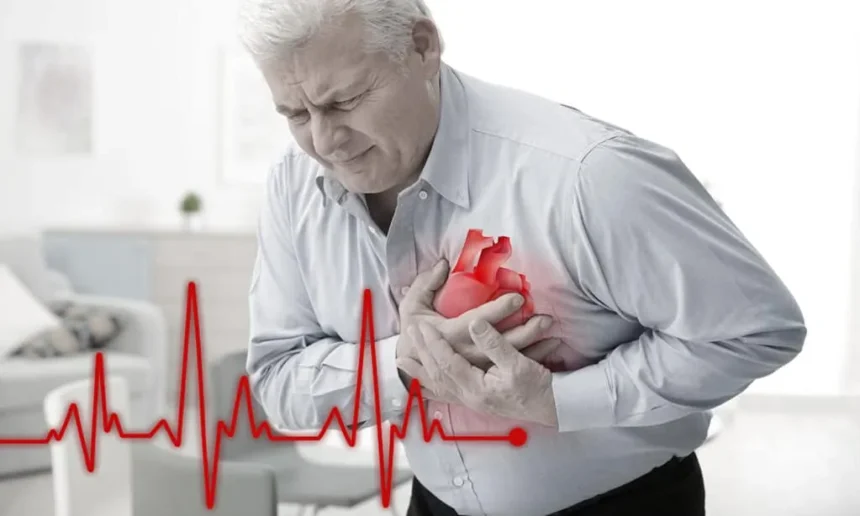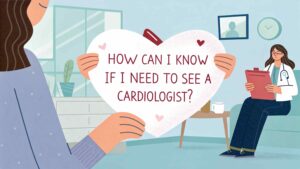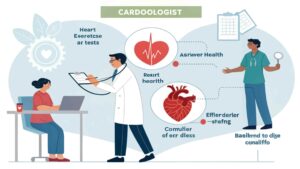Cardiologists specialize in diagnosing and treating heart-related conditions, including palpitations. These medical professionals play a central role in managing cardiovascular health through comprehensive evaluation and treatment. Learning about their services and the evaluation process can help you navigate your heart health issues effectively.
What Is a Cardiologist?
A cardiologist is a medical doctor who specializes in diagnosing, treating, and preventing diseases of the heart and blood vessels. These physicians treat conditions such as coronary artery disease, heart rhythm disorders, heart failure, and valvular heart disease. They work with patients to develop treatment plans that may include lifestyle modifications, medications, or surgical interventions.
What Services Do They Provide?
Cardiologists offer comprehensive cardiovascular care through various diagnostic and treatment services. Diagnostic testing forms a significant part of their practice, including electrocardiograms (ECGs), echocardiograms, stress testing, and cardiac catheterization. These tests help identify structural abnormalities, rhythm disturbances, and blockages in the coronary arteries.
Treatment services include medication management for conditions like high blood pressure, high cholesterol, and heart rhythm disorders. These doctors perform procedures such as stent placement and bypass surgery. They also provide ongoing monitoring for chronic conditions.
Preventive cardiology represents another area of focus. Cardiologists assess cardiovascular risk factors and develop strategies to prevent heart disease. This includes managing diabetes, addressing smoking cessation, and creating exercise programs tailored to individual patient needs.
What Are Palpitations?
Palpitations refer to the sensation of feeling your heartbeat or experiencing irregular heart rhythms. People may describe palpitations as feeling like their heart is racing, fluttering, pounding, or skipping beats. These sensations can occur in the chest, throat, or neck area.
Palpitations last for seconds, minutes, or longer periods. Some people experience them occasionally, while others may have frequent episodes. The sensation can occur during rest or physical activity.
What Causes Them?
Multiple factors can trigger palpitations, including lifestyle choices and various medical conditions. Caffeine consumption, nicotine use, and alcohol intake commonly cause heart rhythm changes. Thyroid disorders, particularly hyperthyroidism, can cause rapid or irregular heartbeats. Anemia, dehydration, and certain medications may also trigger these sensations.
How Are They Checked?
The evaluation process for palpitations begins with a thorough medical history and a comprehensive physical examination. Your cardiologist will ask about the frequency, duration, and triggers of your palpitations. They will also review your medications, lifestyle factors, and family history of heart disease.
Diagnostic testing helps identify the underlying cause of palpitations. An electrocardiogram (ECG) records your heart’s electrical activity and can detect rhythm abnormalities during the test. If palpitations occur infrequently, your doctor may recommend ambulatory monitoring to capture irregular rhythms over extended periods.
Additional testing may include blood work to check thyroid function, electrolyte levels, and other factors that could contribute to palpitations. An echocardiogram may be performed to evaluate heart structure and function. Stress testing may be necessary to assess for underlying heart disease.
Learn More About Heart Palpitations
Understanding palpitations and their causes can help you make informed decisions about your cardiovascular health. While many palpitations are benign, some may indicate underlying heart conditions that require medical attention. If you experience frequent palpitations, chest pain, shortness of breath, or dizziness along with irregular heartbeats, schedule an evaluation with a cardiologist. Early assessment and proper diagnosis can lead to the effective management of your heart health.















